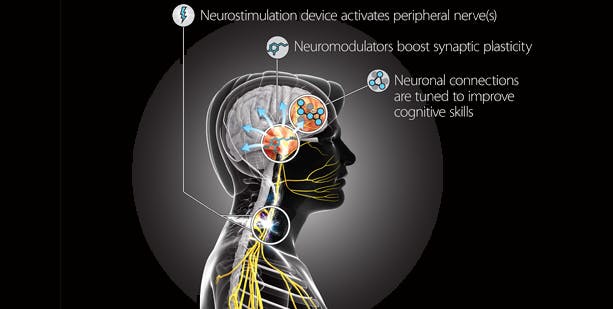Well, you may need to be as that could well happen in the very near future if the Department of Defense gets its own way. The organization believes that human cognitive abilities can be improved by electrically stimulating nerves to spark new connections in the brain. If this works as they say it will it would essentially turn everyone that had to go into a genius, allowing them to soak up new languages, break codes and other complicated tasks with no trouble at all.
Eight university research teams were just recently awarded funds by the department’s Defense Advanced Research Projects Agency (DARPA) in order to help develop the use of cognitive technologies further. People are already trying different ways of improving their cognition, although currently, most involve some form of a drug such as caffeine or LSD. But electrical simulation is a far better way to go as has much more potential than any other option.

The idea that electricity can change the way in which our brain operates is not a new theory and has come a long way since it was first proposed, in the days of electroshock therapies. Rather than just counteract disease, nerve stimulation can potentially enhance a person’s intelligence into the superhuman territory. A variety of conditions is being treated already using targeted nerve stimulation, including epilepsy and depression.
Kevin Otto is a biomedical engineer at the University of Florida who was one of the lucky recipients of the DARPA research grants, and he said, “Pharmacologic treatment can be very successful, but can also have various side effects. Part of the reason is that of the systemic nature of drugs (when taken they tend to spread throughout the body). Neural stimulation has the potential advantage of being very targeted; consequently, we may be able to design devices and therapies that may approach or exceed traditional clinical therapies.” Moving forward, Otto will continue to research decision making and cognitive function in rodents as well as social navigation. There are of course ethical boundaries to consider in this type of study as to create superhuman intelligence is an incredible feat that would not be safe in the hands (or minds) of just.
More News to Read
- Are You Ready for the Million Dollar Prize Machine Learning Contest?
- Innovative New Device Runs on Light While Cleaning Air and Producing Energy
- Understanding the Speed of Light, How Much do We Know?
- NASA’s Plan to Make Electric Planes a Reality
- Are You Ready ” High-Performance Fast Computing Architecture Challenge ” of NASA?











